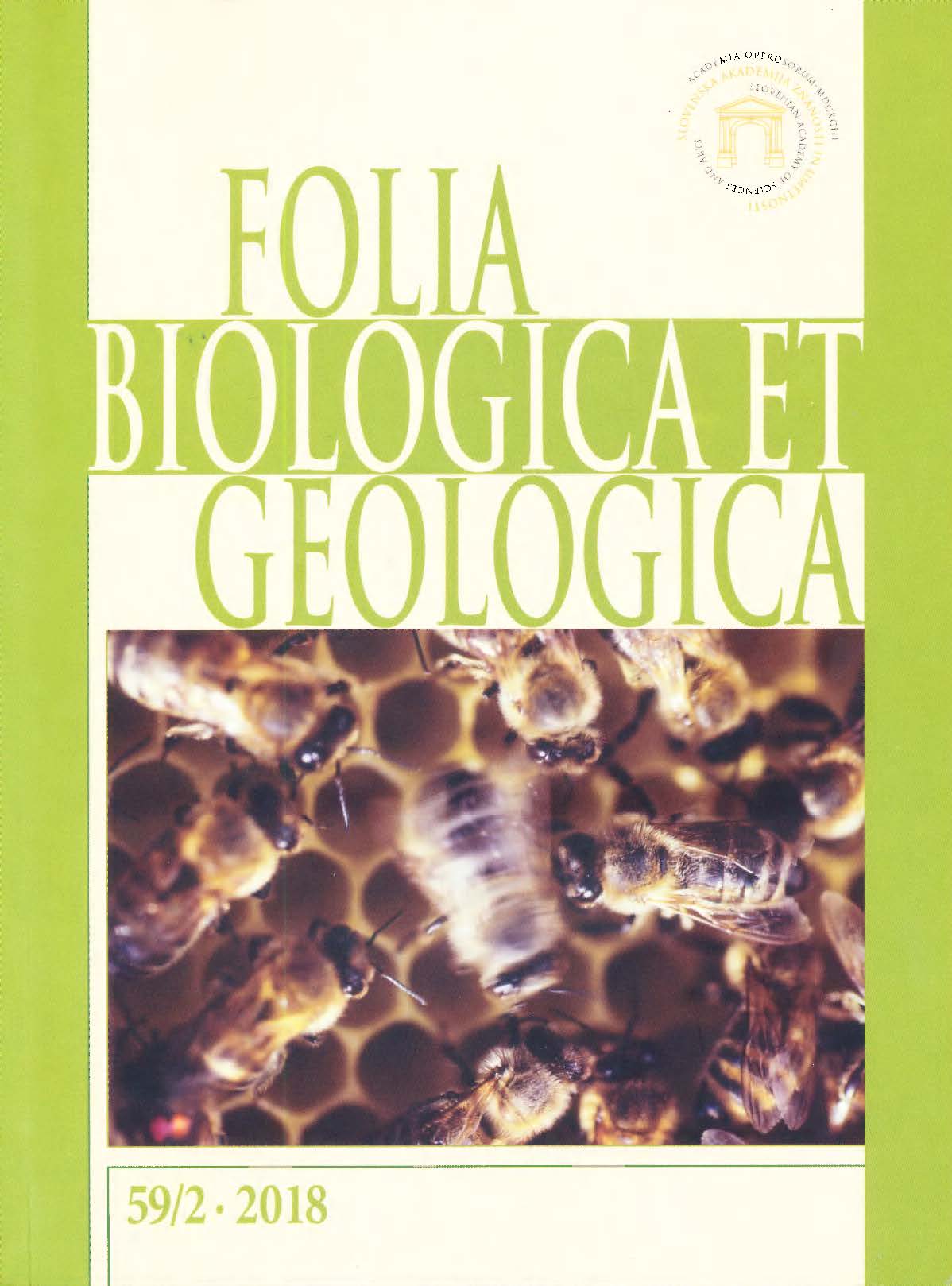Threatened bee species of Europe in Slovenia / Ogrožene čebele Evrope v Sloveniji
DOI:
https://doi.org/10.3986/fbg0042Abstract
Abstract
Three Endangered, seven Vulnerable and 40 Near Threatened species from the European Red List of Bees were recorded in Slovenia. Their distribution in Slovenia is overviewed and the importance of local populations for their survival in Europe is evaluated. Among the Endangered species the Slovenian population of Colletes graeffei is important. The species has also its locus typicus in Slovenia. Interesting is the case of Epeolus cruciger which is very numerous in Slovenia due to transition to a secondary host, Colletes hederae. Its other host, Colletes succinctus, is endangered in Slovenia.
Key words: European Red List, bees, Apiformes, Hymenoptera, fauna, Slovenia
Izvleček
Tri ogrožene, sedem ranljivih in 40 potencialno ogroženih vrst z Evropskega rdečega seznama čebel je bilo najdenih v Sloveniji. Podan je pregled razširjenosti teh vrst v Sloveniji in ocenjen pomen lokalnih populacij za njihovo preživetje v Evropi. Med ogroženimi vrstami je pomembna slovenska populacija vrste Colletes graeffei. Vrsta ima v Sloveniji tudi svoj locus typicus. Zanimiv je primer vrste Epeolus cruciger, ki je v Sloveniji zelo številna zaradi prehoda na drugega gostitelja, vrsto Colletes hederae. Njen drugi gostitelj, Colletes succinctus, je v Sloveniji ogrožena vrsta.
Ključne besede: Evropski rdeči seznam, čebele, Apiformes, Hymenoptera, favna, Slovenija
Downloads
Published
Issue
Section
License
Copyright (c) 2019 Folia biologica et geologica

This work is licensed under a Creative Commons Attribution-ShareAlike 4.0 International License.





